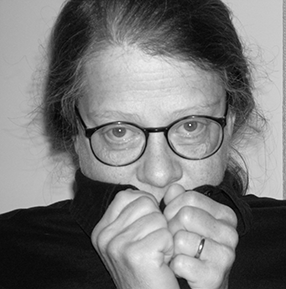Concerning the lost and so
much of it, the Professor of Antiquities
is on TV again—
Think about that.
I love the word oxymoron like I love the word
hope loving him back such a long way.
The ancients then, via digital pulse. But never
to know except with shovel, brush,
magnifying glass. He dreams out the rest.
The rest is resting in dust. The rest too will
come out of deep down
petrified wood or gold or bronze
fierce, the spear end of it.
Not far, so many winged creatures
sculpted out of flight to peer from a ledge,
their grim human heads turned sideways, desert
a distance, a horizon. Column after column
holding up ago
what made it cool in there, made us all
the first days of the world: lie down,
close your eyes a moment,
listen to the fountain.
The Professor of Antiquities
looks into the camera as into what the Oracle saw
and says you don’t destroy,
you restore. All this time to recover
words for beer, for how-much-you-owe-me, for gods
and king, the body living or in death, what to do,
what’s elegy and next
marked on clay tablets with a stick.
First lost layer of city. Shock-seizure
of flames larger than night
after night some year B.C. burning back
temple or palace until
safe all words, safe,
slow-fired to stone in the lower chamber
when everything, everything else—
Copyright © 2016 by Marianne Boruch. Originally published in Poem-a-Day on September 13, 2016, by the Academy of American Poets.
“‘The First Layer of City’ steps out of time into current time, an elegy of sorts for the beginning of human culture and dream, and thankful, in particular, to those who work to unearth and honor the past, assuming a future. The fact that great fires in ancient temples turned clay tablets to stone is a hopeful, ironic gift in the face of destruction.”
—Marianne Boruch

